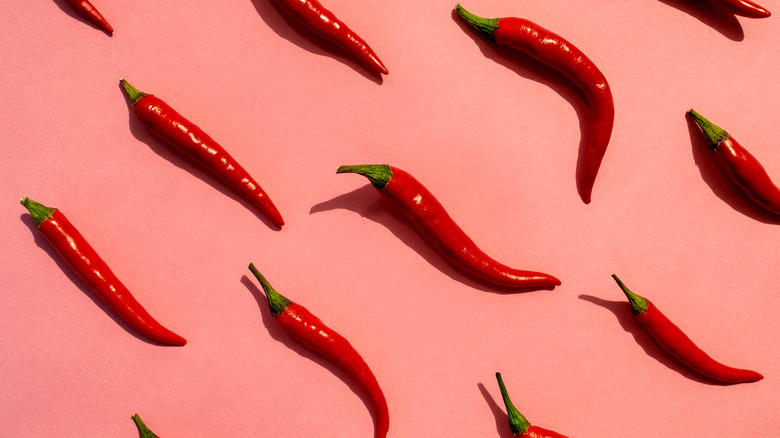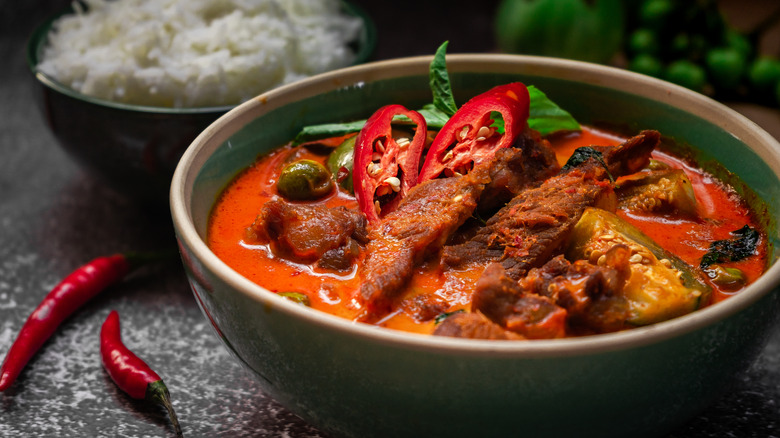You Might Want To Skip Stocking Up On Spicy Food In The Winter
It's that time of year when a chill descends upon the Northern Hemisphere, sending us scurrying into our homes to hunker down by the fire and binge-watch nostalgic holiday movies. Even with the comforts of a heater and a heavy blanket, nothing warms you up quite like a hot meal, kindling your very core. It's no wonder then that so many of our winter holidays revolve, at least in part, around a big hot meal, from gravy boats to apple pie. And just think back to your childhood. When you caught a cold, what did Mom give you? A bowl of soup and a cup of hot tea are likely answers.
If you're looking for a meal that will warm you up, spicy foods might come to mind. It makes sense, doesn't it? After all, we call spicy foods hot, and they can sure make your tongue feel like it's been through a bonfire. However, it turns out spicy foods are exactly the opposite of what you want, and they're best enjoyed during summertime heat waves. It might seem counterintuitive to double down on heat when the weather is roasting, but Quartz explains that, unlike a cup of hot chocolate or cider, spicy foods actually cool your body down, rather than warm it up.
Spicy food cools you down
Spicy foods feel like they burn your tongue because, well, they do. Many people think of spicy as a flavor, but the National Library of Medicine reveals that spiciness is actually a pain signal caused when the capsaicin (the chemical that makes food spicy) makes contact with the same nerves on our tongues that sense temperature changes. Your body reacts to spicy foods in the same way it reacts to heat, and this includes making you sweat. Sweat, or more specifically, the evaporation of sweat, is the body's natural method of cooling itself. As Scientific American explains, evaporation requires energy in the form of heat, and when our sweat evaporates, it transfers heat away from our bodies. By inducing sweat, spicy food can actually cool you off.
So, if not spicy foods, then what should you eat to warm up? The obvious answer is something hot like soup or stew, but you can also warm your body through a phenomenon called diet-induced thermogenesis (DIT). As the Journal of Endocrinology explains, the digestive process generates energy that dissipates heat. Certain foods do this more than others. According to Express, foods that are harder to digest are actually preferable in winter because they lead to a greater increase in body temperature. High-protein foods like fish, lean meat, and legumes are the perfect example. Healthline adds that high-fiber vegetables can have the same effect.

